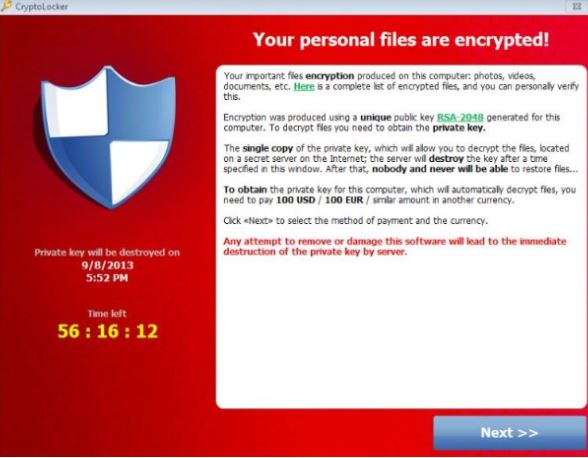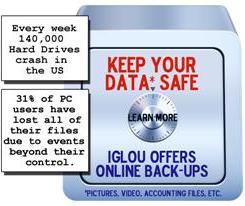Crypto Locker Virus Holds Your Computer Hostage
If you ever needed a reminder to be careful about the emails and attachments you open, it’s now. The Crypto Locker virus that is going around is said to be one of the worst ever and is infecting computers with the Windows OS all across the United States. The virus, also called “ransomware,” works by holding your files hostage until you pay a fee.
The Crypto Locker virus is passed around in emails that have innocent enough looking senders, such as UPS or FedEx, but they’re not really from these corporations, of course. Instead, when you open the attachment, your computer becomes infected and the virus locks all your files until you pay a ransom. Check out a picture of what the Crypto Locker demand screen looks like:
“Ransomware causes your computer files to be non-accessible and when that happens you have two choices. You can recover if you have a backup which I hope you do or pay the ransom within 100 hours. If you do not pay the ransom you lose all of your data,” technology expert Anthony Mongeluzo said.
“It will disguise itself as JPEG images, as PDF files, as Microsoft Office files,” said Troy Viers, an IT specialist. “If you get an email from somebody you do not know, especially if it’s got attachments, don’t open anything with it, just delete the email.” After the computer becomes infected, users are usually given 100 hours to pay a fee between $100 and $700 to get the files decrypted.
ABC 33-40, a news station out of Birmingham, Alabama, was hit with the Crypto Locker virus. The director of engineering for ABC 33-40, Ron Thomas, described his station’s experience with the virus. “You buy this $300 Green Dot MoneyPak, you cannot use a credit card for it, it had to be cash or debit card. Once they claim the funds, they unlock your files. If those files had been lost, it could’ve affected 10 years’ worth of work by several departments,” said Thomas.
The two most important things you can do as far as the Crypto Locker virus–or any other virus, for that matter–is concerned is to make sure you have all of your files backed up and be very wary about the emails you open. There are quite a few companies that offer free virtual storage, such as Google and Amazon, so it’s easy to back up at least part of your files if you trust online storage. Alternatively, you can back up your files to another partition on your computer or to an external hard drive.
Article found here.
If your PC gets infected contact IgLou Onsite and we’ll help you remove it from your PC.
Be safe and back up your files. Click here to see what is available.






